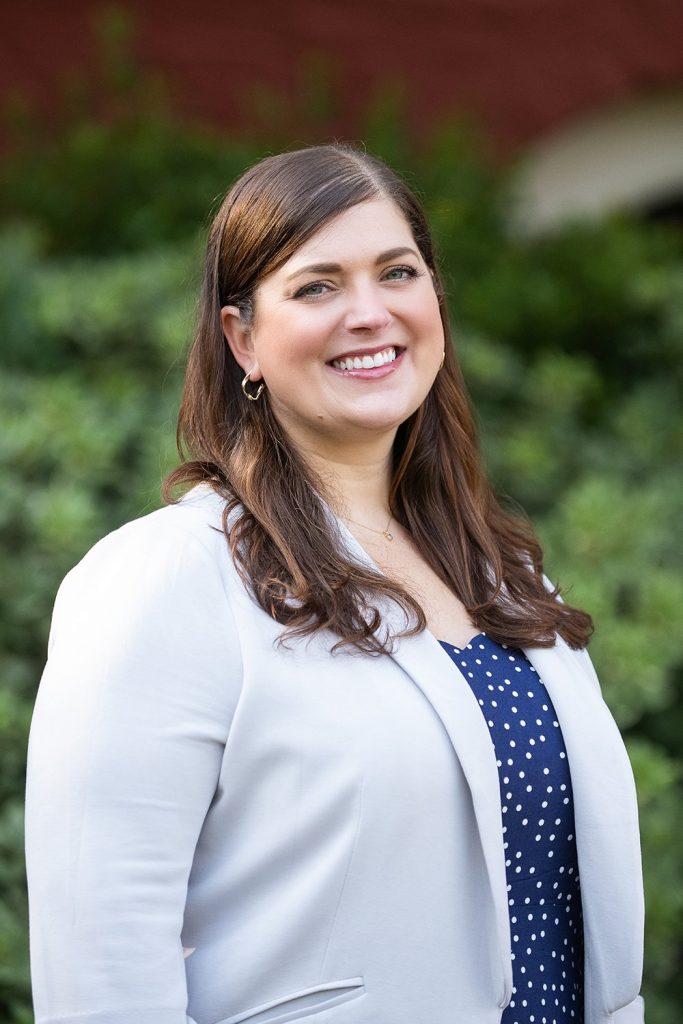In her pursuit to understand why sexual education has been deemed “controversial,” a Binghamton University alum became a finalist for a dissertation award — the only humanities project to do so.
Julia Haager, MA ‘15, Ph.D. ‘22, was nominated for the SUNY Chancellor Distinguished Dissertation Award for her work linking public sex education and eugenics. Eugenics is a social and political philosophy that seeks to eliminate the possibility of birth defects and improve the genetic makeup of society through selective reproduction, according to the American Psychological Association.
“My dissertation explores the emergence of eugenic ideas,” Haager wrote in an email. “How they permeated popular culture and public discourse during the first four decades of the twentieth century, and how the prevalence of eugenic thinking and language shaped public school sex education during that time.”
Leigh Ann Wheeler, a professor of history at BU, said she nominated Haager’s work because she believes it clearly depicts the timeline from when sex education revolved around morality and instilling values to when it was populated by scientific theory.
Wheeler said Haager shines a light on the fact that while evidence-based sex education was backed by science, it was predominantly encouraging eugenic thought.
“Dr. Haager’s work shows us how progressive reformers, eugenicists, public officials, school administrators, teachers, parents and their organizations used sex education to achieve broader — and often seemingly unrelated — goals related to race, immigration, gender and citizenship,” Wheeler wrote in her nomination letter for Haager. “It is crucial that we know this history so that we can see and analyze how we, today, are deploying sex education for seemingly unrelated — and possibly quite harmful — purposes.
Haager said that, to her, the issue with eugenic thought is that it teaches kids about sex in a way that would create a hierarchy of who should be reproduced with. Historians often ignore this because it was a less “compulsive and violent” form of the eugenic movement, meaning it isn’t seen as being as harmful in the grand scheme of things, according to her dissertation.
“My research helps explain why genetics and heredity have come to be seen in the context of public schools as value-neutral staples of sex education in the 21st century, even though the growth and availability of genetic testing and reproductive technology has made people’s reproductive decisions more ethically complicated than ever before,” Haager wrote. “It also allows us to better grasp contemporary debates about public-school sex education, which have been largely (and perhaps excessively) consumed by arguments about religion, abstinence, parental rights, sexuality and gender, rather than equally concerning and contentious topics like health care access and inequities.”
Haager said her dissertation works to make three key interventions in the state of existing historical scholarship — that eugenics has an “ideological trajectory” that goes beyond the academic and political landscapes — it was a sturdy figment of American culture — it proves that despite the evolution of sexual education, eugenic language is still deeply embedded within the schooling system due to how subtle its language can be — and illustrates that racially and culturally diverse groups of individuals with their competing goals, were pivotal in the perpetuation of eugenic sex education curricula in American public schools.
Jasmine Orgo, a junior majoring in biology, said studying the past of sex education is important because it uncovers just how “deeply racist” and “discriminatory” public education used to be.
“In modern schooling, eugenics no longer has a role to play because public sex education has moved more toward teaching students how to properly and safely have sex — using condoms, preparation and consent,” Orgo said. “However, in the past, sexual education was no more about sex than it was about promoting schools of thought like phrenology and eugenics. It was a way to incorporate racism and social hierarchy into school curriculums without making it obvious.”
Haager explained that she was not surprised to be the only humanity project nominated. According to her, history doesn’t get nearly as much recognition as other disciplines because it isn’t as much of an academic and administrative priority.
Joskarly Fermin Rodriguez, a junior majoring in Italian, believes eugenic studies are a gateway to further separate those with mental disabilities from “normal society.”
“Because of eugenics, there was more effort put into eradicating disease rather than working with them, in hopes of building a perfect society,” Fermin Rodriquez wrote. “ To this day people with physical and mental disabilities struggle to simply exist in this world because of the neurotypical mentality that they are ‘others’ instead of being human.”
Regarding her next steps, Haager is currently turning her dissertation into a full book. She is also in the process of writing a second book with Sean Massey aiming to contextualize the AIDS crisis of the 1980s and 1990s as part of a larger evolution of America’s view of race, gender, sexuality and mental health care.



